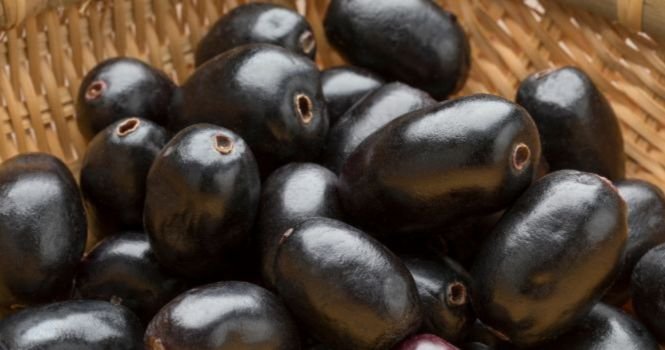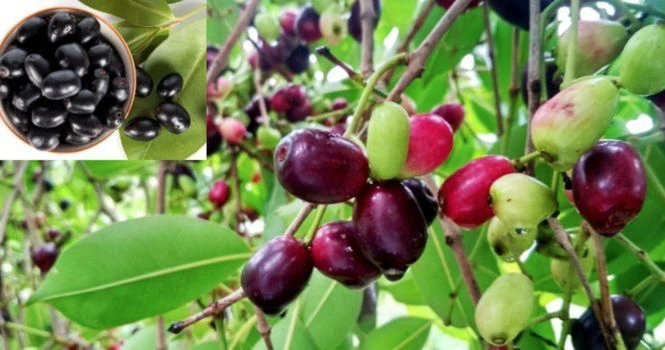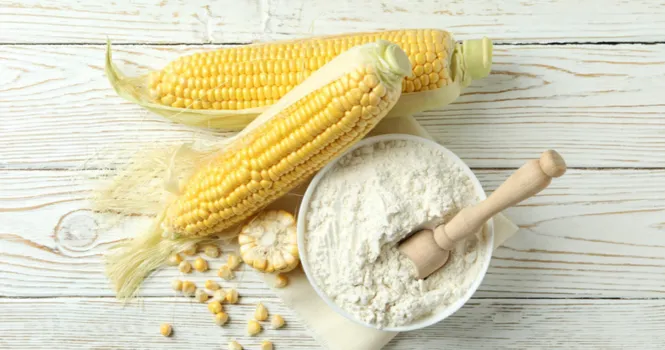Jamun Fruit: The Purple Powerhouse

Jamun, also known as Indian Blackberry or Syzygium cumini, is a tropical fruit native to the Indian Subcontinent, adjoining regions of Southeast Asia, and certain parts of Africa.
It is mostly available during the summer months and shortly thereafter which usually is from June to August.

Synonyms of Jamun Fruit in other Languages and Countries
- English: Java plum, Black plum, Indian blackberry.
- Hindi (India): Jamun, Jambul.
- Tamil (India): Naaval pazham, Naval pazham.
- Telugu (India): Neredu.
- Kannada (India): Nerale Hannu.
- Malayalam (India): Naaval Pazham.
- Bengali (India, Bangladesh): Kala Jam, Jam
- Tagalog (Philippines): Duhat.
- Malay (Malaysia, Indonesia): Jambu, Jambu Batu.
- Thai (Thailand): Lukwa.
- Portuguese (Brazil): Jambolão, Jamelão.
- Spanish: Ciruela Negra de Java, Ciruela Negra India.
Nutritional Information of Jamun Fruit:
| Nutrient | Amount (per 100 grams of fresh J®amun fruit) |
|---|---|
| Calories | 62-75 kcal |
| Protein | 0.7 – 0.9 g |
| Total Fat | 0.2 – 0.3 g® |
| Saturated Fat | Negligible |
| Cholesterol | 0 mg |
| Carbohydrates | 14 – 16 g |
| Dietary Fiber | 0.6 – 0.9 g |
| Sugars | 8-10 g |
| Vitamin A | 3 – 15 IU |
| Vitamin C | 10-15 mg |
| Vitamin K | 2.4 mcg |
| Folate | 3 mcg |
| Calcium | 15 – 20 mg |
| Iron | 0.19 – 0.3 mg |
| Magnesium | 15 – 17 mg |
| Phosphorus | 15 – 17 mg |
| Potassium | 55 – 80 mg |
| Sodium | 14 – 26 mg |
Why is Jamun Fruit Purple?
Jamun fruit is purple because it contains a high concentration of pigments known as anthocyanins.
Anthocyanins belong to a group of compounds called flavonoids, which are responsible for providing colors to many fruits, vegetables, and flowers. The color can range from red to blue to purple, depending on the pH level.
In the case of jamun, the anthocyanins give the fruit its characteristic deep purple to almost black color.
Additionally, anthocyanins are known for their antioxidant properties, which are beneficial for health as they help in neutralizing free radicals and protecting the body from oxidative stress.
Why Does The Tongue Stain Purple After Eating Jamun Fruit?
When you eat jamun fruit, your tongue turns purple because of the anthocyanin pigments present in the fruit. As mentioned before, anthocyanins are responsible for giving jamun its deep purple to almost black color.
These pigments are water-soluble and can easily color bodily fluids like saliva.
When you eat the fruit, these pigments mix with your saliva, causing your tongue and sometimes your lips and teeth to take on a purple color.
Don’t worry, this is temporary and will fade away after a while.
Health Benefits of Jamun Fruit
Jamun fruit has been prized for its health benefits for centuries, especially in traditional Ayurvedic medicine. The following are some important health benefits associated with consuming Jamun fruit:
Antidiabetic Properties:
Jamun is known for its role in regulating blood sugar levels. It has a low glycemic index and the compounds in Jamun are believed to have anti-diabetic effects.
Rich in Antioxidants:
The fruit is packed with antioxidants, especially anthocyanins, which help in neutralizing the harmful effects of free radicals, thus protecting the body from oxidative stress and reducing the risk of chronic diseases.
Improves Digestion:
Jamun is beneficial for the digestive system. It is used as a remedy for digestive disorders and can help in treating diarrhea, indigestion, and other gastrointestinal issues.
Boosts Immunity:
High in Vitamin C and other immune-boosting compounds, Jamun helps in enhancing the body’s immune response against infections.
Heart Health:
The potassium content in Jamun helps in maintaining blood pressure, and its antioxidants are thought to reduce the risk of heart diseases by preventing the oxidation of LDL cholesterol.
Anti-cancer Properties:
The antioxidants and phytochemicals in Jamun are believed to have anti-cancer properties. They help in neutralizing the harmful effects of free radicals and are believed to have potential anti-tumor effects.
Improves Oral Health:
The antibacterial properties of Jamun are beneficial for oral health. Chewing on Jamun leaves or consuming the fruit is believed to be effective in treating infections and inflammation in the mouth and gums.
Weight Management:
Being low in calories and high in fiber, Jamun can be a good addition to a weight management diet. It helps in providing satiety and preventing overeating.
Improves Bone Health:
Jamun contains calcium and phosphorus which are essential for the development and maintenance of bones and teeth.
Liver Detoxification:
It is believed that Jamun helps in liver detoxification and can be beneficial in protecting the liver against damage caused by free radicals.
Skin Health:
The antioxidants in Jamun can also be beneficial for skin health by preventing premature aging and reducing the appearance of fine lines and wrinkles.
Please note that while Jamun has various health benefits, it should be consumed as part of a balanced diet. Additionally, individuals with specific health conditions should consult their doctor before making significant changes to their diet.
How to Clean and Store Jamun at Home?
Jamun is a delicate fruit and has a relatively short shelf life. Proper storage is essential to maintain its freshness and prevent spoilage due to fungus or other microbial growth. Follow these steps to store Jamun fruit at home:
1. Cleaning:
Before storing, it is advisable to clean the fruit. Rinse the Jamuns gently under cold water to remove any dirt or residues.
2. Drying:
After washing, pat the Jamuns dry with a clean cloth or paper towel. It’s important to remove excess moisture as this can promote fungal growth.
3. Refrigeration:
Store the dried Jamuns in the refrigerator to prolong their shelf life. Place them in a perforated plastic bag or a container with a lid, but do not seal it air-tight. This will allow for some airflow which helps in preventing excess moisture build-up.
4. Use Paper Towels:
You can also place a paper towel in the container with the Jamuns. This will absorb any excess moisture and help prevent the growth of mold and fungus.
5. Freezing for Longer Storage:
If you want to store Jamun for an extended period, you can consider freezing them. Before freezing, you can cut them into halves and remove the seed. Place the pieces on a tray and freeze them. Once frozen, transfer them to an airtight container or a freezer bag. This method is known as flash freezing and prevents the fruit pieces from sticking together.
6. Regular Checks:
Make sure to regularly check on the Jamuns in the refrigerator. If you notice any signs of mold or spoilage, it’s best to remove the affected fruits immediately to prevent the spread to other fruits.
7. Consume Quickly:
Even with proper storage, it’s best to consume Jamun within a few days as it’s a highly perishable fruit.
Remember that Jamuns are best when consumed fresh, and the longer they are stored, the more they lose their flavor and nutritional value.
![]()












